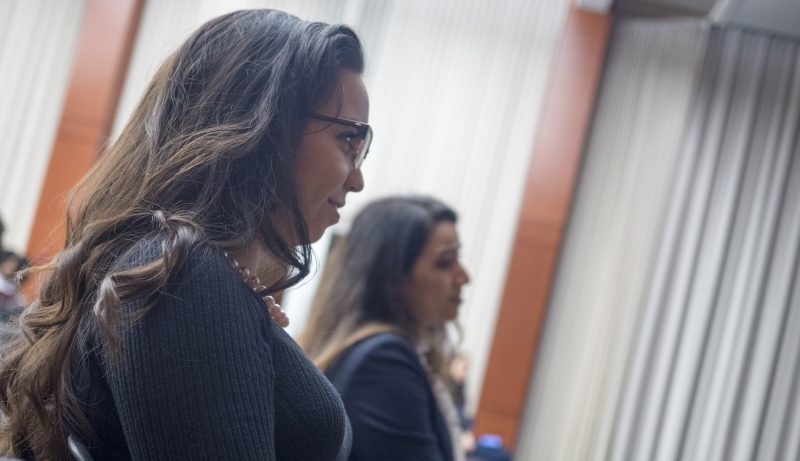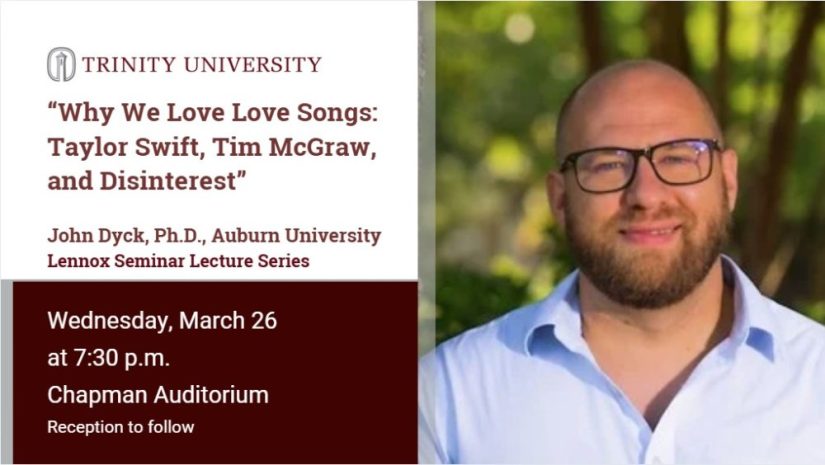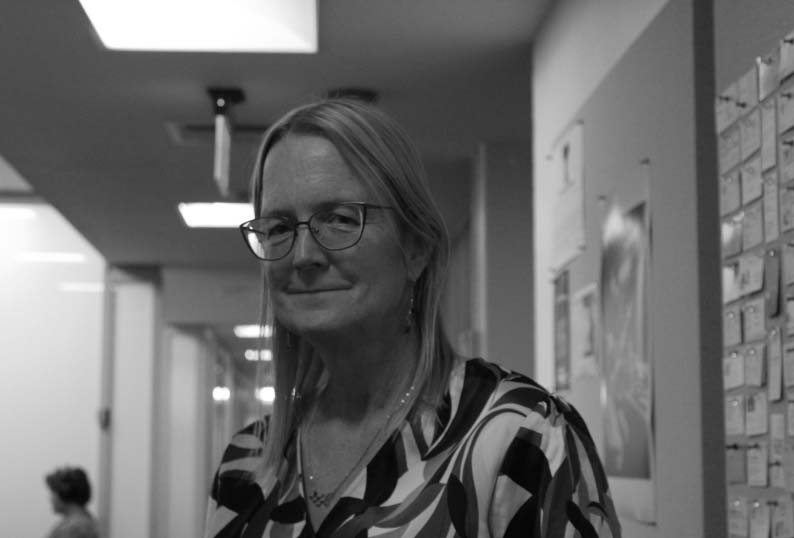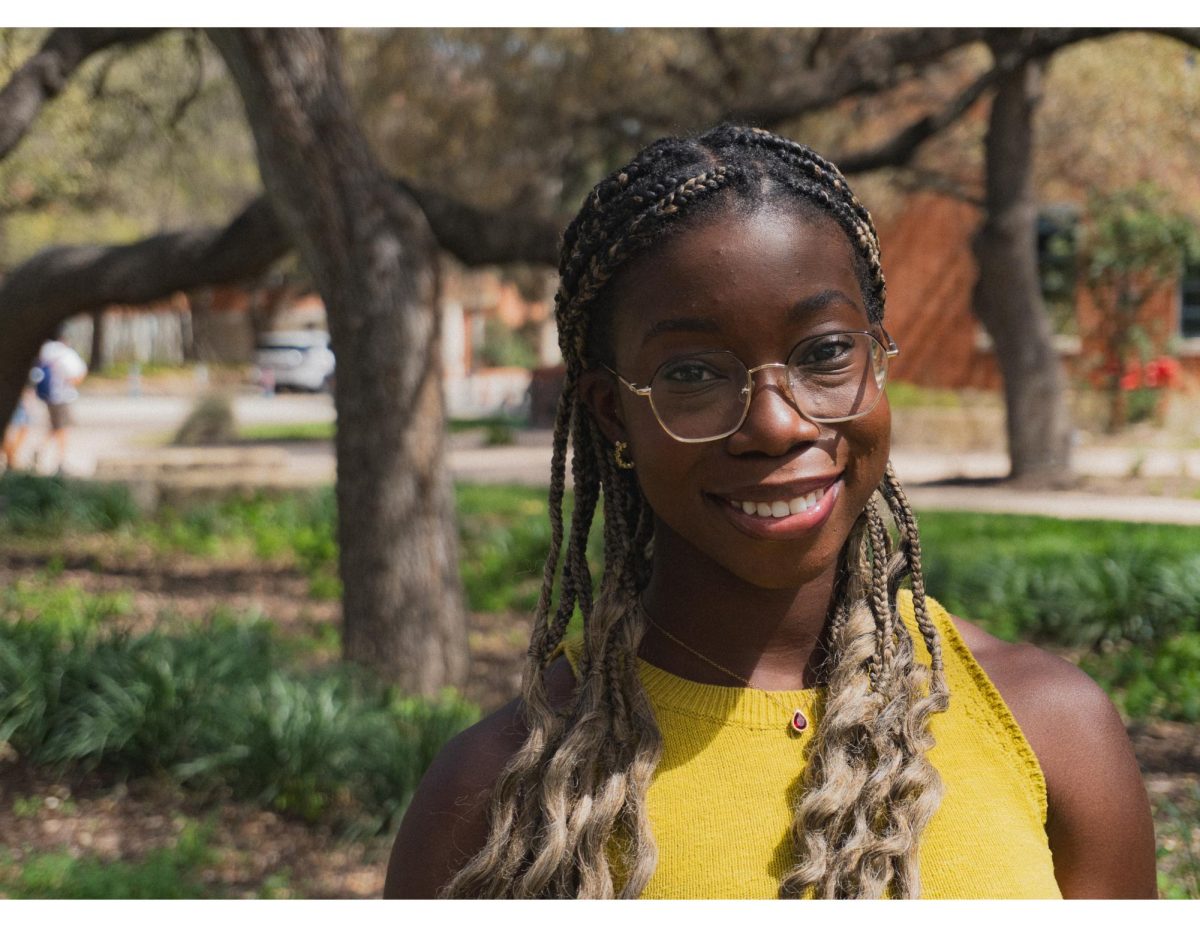Daniela Montúfar Soria never thought she’d be walking into the financial aid office asking for more money. Her father’s job in Mexico had been stable, and the university had given her sufficient scholarship funds so she had always been able to afford tuition. However, after Trump became president, Montúfar Soria suddenly faced a problem many international students will encounter during their college years: the value of her country’s currency dipped.
“Trinity suddenly cost 25 percent more because my father still earned money in pesos,” Montúfar Soria, junior international economics and political science double major, said.
The administration gave Montúfar Soria few options. The International Student and Scholar Services (ISSS) office first suggested that she transfer to a more affordable university. The financial aid office explained that a large pool of funds is reserved for American students, while a smaller amount is reserved for international students; this is fair, they suggested, because American students cannot touch money that was not reserved for them.
“I’m like, yes, but American students have access to the larger amount of money, and they have access to federal aid, and other scholarships that international students don’t have access to because we don’t have residence or a citizenship. Their answer to that was yes, but they didn’t choose to go study in a country that was not their own,” Montúfar Soria said. “There is a little sign in the parking lot of Laurie that says, ‘You Belong Here.’ After hearing that statement, that is not the message I got,” Montúfar Soria continued.
The value of the peso eventually increased again, so Montúfar Soria was able to afford school. However, hers is not an isolated case: Others have also needed assistance and been rebuffed.
Nadia Lozano, junior political science major from Honduras, remembers begging for a one week extension on her tuition payment.
“At one point, I was a couple of weeks behind on payments and went to financial services to speak to the vice president [of student financial services]. I was crying in her office, and she just said, ‘You should make arrangements to withdraw.’ I had only asked her to give me a week and to let me sign up for housing,” Lozano said.
Lozano’s father was able to scrape enough money together and make the payment the next day. The money takes four days to be wired in from Honduras, so Lozano sent in a confirmation from her bank, and asked to register for housing. The response?
“She said, ‘I knew it could be done. I can’t be giving out extensions, or people will never pay,” Lozano said.
Lutfi Sun, sophomore economics major from Turkey, struggled to afford Trinity recently. Unlike others, he reports being happy with the help he received in his time of need.
“My father was in jail, my uncles were in jail, they were all fired and our family was not able to afford my education. I went to the financial aid office, and they said it was unlikely that I would get any more money,” Sun said, “But Dr. Sheryl Tynes, the vice president, personally helped me going through what I was going through. She was always there, she was always reachable,” Sun said.
There were cases when Sun couldn’t take his midterms and Tynes emailed the professors asking if he could miss. Tynes helped Sun talk to the financial office. Recently, an anonymous donor paid for Sun’s room and board.
“The people and administration, they are willing to help,” Sun said.
Yet, there are always students beyond help. Robert M. Seese, assistant director of ISSS, reflected that some students simply run out of money.
“There are some students who bottom out. Even American students have that problem. I don’t disagree that there probably could be more, but I will say that we receive on average 150 to 160 international student scholarships per year for new students. Trinity offers a lot of money to students who come here, but a lot of things can happen after somebody comes here,” Seese said.
Montúfar Soria is determined to see the university improve in several areas. Students she’s talked to have faced a range of issues, from financial to emotional. With these issues in mind, Montúfar Soria ran for class of 2019 senator, her campaign mostly focusing on international students’ problems. She won.
“I was really happy to see other students, like American students, being like, ‘Oh, I saw your platform and that’s really cool,’ ” Montúfar Soria said.
The new senator is optimistic about the future.
“I think the university does have the intent to help us. They just think that since no one is complaining, everything is fine. Well, no, it’s just that no one feels like they can say anything, because they don’t feel like they have a say,” said Montúfar Soria.
Montúfar Soria looks forward to using her SGA position to give students a voice. To contact senator Montúfar Soria, you can email her at dmontufa@trinity.edu.








